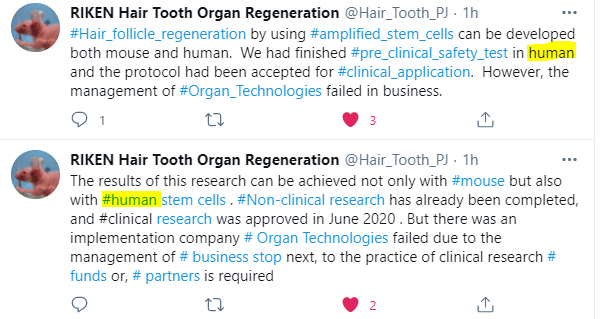South Korea’s aging and record low birth rate society is necessitating rapid changes to government regulations when it comes to the regenerative medicine sector. Speed is the name of the game, and South Korea’s large hair loss research sector will likely benefit as a result.

May 29, 2024
South Korea Advanced Regenerative Medicine and Biopharmaceuticals Act: February 2025
On May 27, 2024 it was announced that South Korea’s Ministry of Health and Welfare will release a draft enforcement ordinance for the “Advanced Regenerative Medicine and Advanced Biopharmaceuticals Act” in the next month. This revision to the “Cheomsaeng Act” (passed in 2020) is scheduled to go into full effect from February 2025.
The revised laws will revitalize regenerative medicine and biopharmaceutical research in South Korea, and speed up the development of cell and gene therapy (CGT) treatments. Moreover, South Koreans will be allowed to receive advanced regenerative medical treatments (including stem cells) in South Korea. Reducing the current trend of going abroad to Japan and other developed nations.
According to a May 14, 2024 article in Korea Biomedical Review, local biopharmaceutical companies have high expectations from the amendment to the Act on Safety and Support for Advanced Regenerative Medicine and Advanced Biopharmaceuticals. This regulation passed the National Assembly in February, 2024 (see below).
February 2, 2024
Amendment to Regenerative Medicine Safety Act
In February 2024, South Korea passed a bill that adds regenerative medicine organizations to the list of those considered for human cell management business licenses. This will have positive implications when it comes to faster in-clinic use of new autologous hair loss treatments.
According to one article, this amendment to the Advanced Regenerative Biotech Act will serve as a positive catalyst for both South Korean and Japanese cell therapy companies. Note that Japan fast tracked its stem cell regenerative medicine rules a decade ago. Both South Korea and Japan suffer from rapidly aging societies with extremely low birth rates. Thus making regenerative medicine a topmost government priority.
The title of the bill that South Korea’s National Assembly passed is:
“Amendment to the Act on Safety and Support for Advanced Regenerative Medicine and Advanced Biopharmaceuticals.”
This amendment will add regenerative medicine organizations to those considered for licensure to manage human cells. The cell management business entails the collection, importation, testing, and processing of human cells. These organizations supply cells as raw materials for advanced biopharmaceuticals.
In addition to existing manufacturers and umbilical cord blood banks, advanced regenerative medical institutions will now be recognized as licensees for managing human cells.
If the revised advanced regenerative biotech law is enforced (as expected):
“Advanced regenerative medical institutions with facilities, equipment, and manpower similar to the standards for licensing human cells and other management businesses will be recognized as licensed as a management business.”
Subsequently, advanced regenerative medical institutions will be allowed to supply raw materials to advanced biopharmaceuticals through simple separation, washing, freezing, and thawing of cells derived from patients.
Of special significance, this opens the way for actual patients (rather than just research subjects) to receive regenerative medicine services. Even if a South Korean patient is not a participant in a clinical trial, he or she can in the near future still receive cell therapy treatment.
I hope that these law changes will benefit the increasing number of new South Korean stem cell based hair loss treatment companies.
